The power of one
If you’ve ever wondered if one person can make a difference, just speak with Dr Linda Beaumont, Professor and Deputy Dean of Education and Employability in the Faculty of Science and Engineering. Whether you’re talking about biodiversity and climate change – she graduated with a Bachelor of Science (Honours, 2001) and a PhD (2008), after all – or the power of a university education and scholarships to change lives, having an impact really does start with you.
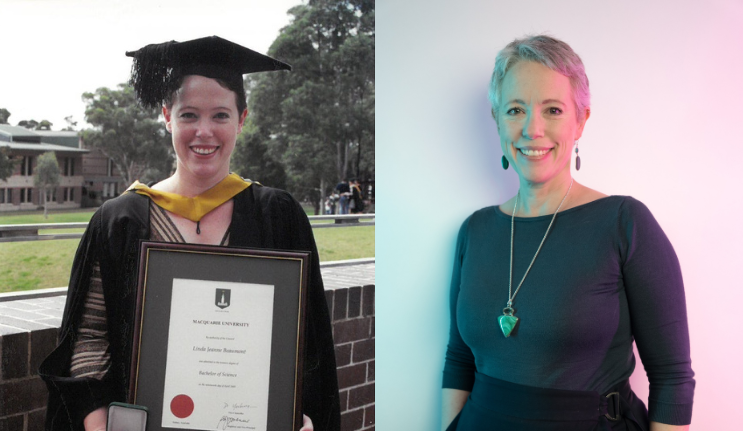
Dr Beaumont’s story begins on a farm outside the small country town of Dorrigo in the Northern New South Wales hinterland. A place of breathtaking beauty on the edge of World Heritage-listed national park, the area is known for its Gondwana Rainforest and spectacular waterfalls. ‘It’s just beautiful,’ she says.
‘As kids, we loved roaming around the farm. My siblings and I would pack a bag, Mum would make us damper, and we’d grab the golden syrup and set off for the day. When it was time for lunch, we’d build a little fire, wrap the damper around a stick, put it in the flames and dunk it in the golden syrup.’
She laughs, and admits she’d never have allowed her kids to do the same thing, but reflects, ‘There was never a time, in any part of my life, where I felt I couldn’t do something, or was told I wouldn’t be able to accomplish something. I’ve always assumed if I set a goal, I’ll reach it.
‘I was very fortunate my parents never discouraged me from doing anything,’ she continues. ‘I remember my mum saying she was told she couldn’t be a pilot because she was a woman, so she was determined to never tell us kids we couldn’t do something – and that has been incredibly powerful.’
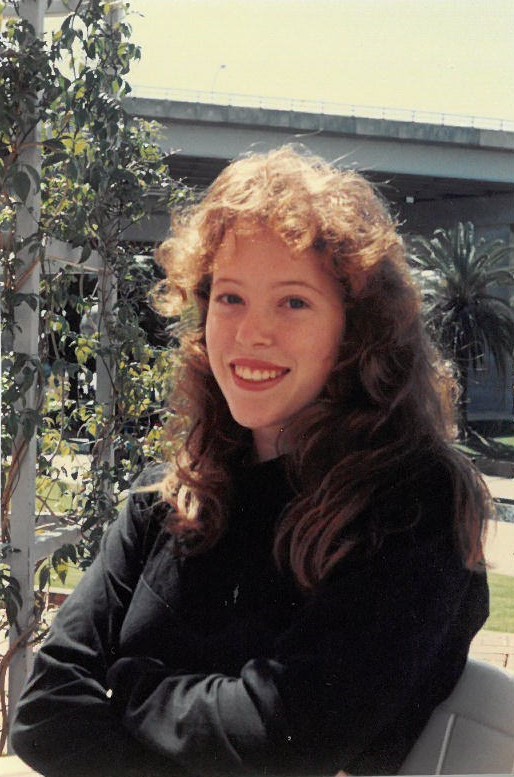
There were limitations to living in a rural area, however, acknowledges Dr Beaumont, which is why she left school at the end of Year 10. ‘I wanted to study drama but decided to go to business school and get some secretarial skills so I could work while studying. I left home just before I turned 16 and supported myself.’
Leaving school at that age wasn’t too uncommon at the time, but leaving home certainly was. ‘It didn’t dawn on me until quite recently that leaving home at 15 was a pretty big thing,’ she says. ‘Still, I never doubted I could do it.’
Even so, by 21 Dr Beaumont says she was a little lost. ‘I didn’t know which direction I wanted to go in but loved wildlife, so decided to backpack through southern Africa to clear my head. I had an amazing trip, but when I was in Zimbabwe, I lost my backpack, came within 2 metres of an elephant while walking along the banks of the Zambezi, and had an incident with a baboon. I got to Victoria Falls and just remember thinking how remarkable they were – I knew I wanted to know more about life and biodiversity.’
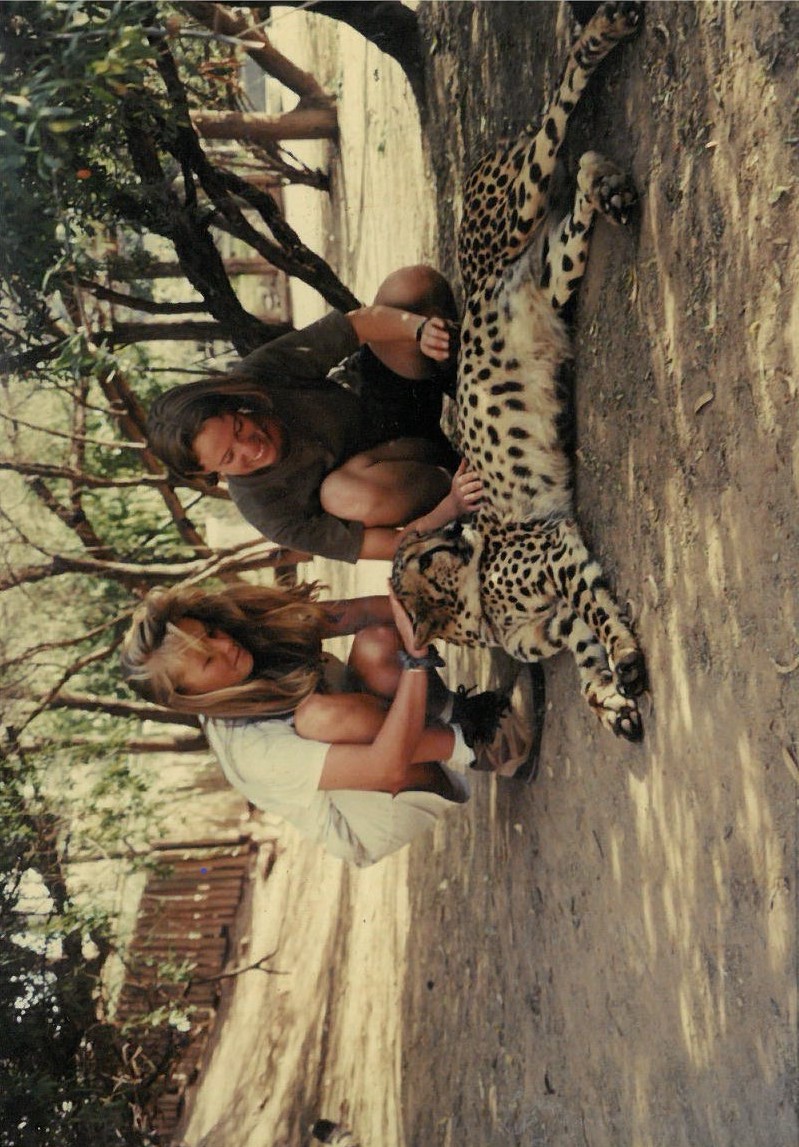
So, she came back to Australia, where she realised she’d need to go to university. ‘But I didn’t have an HSC, so enrolled in an Associate Diploma in Biological Techniques at TAFE instead, where I got high enough marks to go directly into second year of a Bachelor of Advanced Science at Macquarie University.’
Still, fearing the lack of an HSC would still hold her back, Dr Beaumont phoned the head of the program, Emeritus Professor Mark Westoby. ‘He was very positive,’ she remembers. ‘And the knowledge that Macquarie offered another pathway – it wasn’t just for students straight out of high school, there were pathways for people who’d done different things in life – was just fantastic.’
Indeed, Dr Beaumont counts the people she has met at Macquarie University as being pivotal to her nearly 27 years at the university. ‘When I was doing my degree, it was the academics, their passion and the stellar work they were doing, and the advice they gave me, which was so valuable.
‘I remember wanting to do something in ecology, which led to work as a research assistant with Distinguished Professor of Biology and Pro Vice-Chancellor Lesley Hughes. She’s incredibly well respected globally for her work on biodiversity and climate change, and she’d written a groundbreaking paper in 2001, which just got me hooked.
‘There wasn’t anyone in the Sydney region doing as much in that area as she was, and that’s a significant reason why, apart from a short stint in France, I’ve remained at Macquarie – the research here in climate change and biodiversity is incredible. I went on to do honours and my PhD with Lesley, and she’s become a lifelong mentor.’
Professor Damian Gore from the School of Natural Sciences at Macquarie has also been instrumental. ‘I remember telling him a couple of years ago that he and Lesley were responsible for the direction of my career, and that he’d said something that was just so important. He didn’t remember his off-the-cuff comment, but for me, it solidified what I wanted to do and the direction I wanted to go in. And it has always struck me how such a small comment can have such an impact.’
So, what did Professor Gore tell her? ‘I wanted to learn more about biodiversity and climate change, and he said I needed to study a subject called Geographic Information Systems, which at its most simplistic is digital maps, analysing where things are in space and discovering patterns. I’ve always been fascinated by maps and loved patterns, especially related to where species occur, but to be able to do it all digitally and create models – in 1998 – was really cool. I loved that.’
First appointed as a senior lecturer in 2014, and then associate professor and professor, Dr Beaumont’s research at Macquarie has mainly involved working with state government, for example on how climate change might impact areas that are home to threatened species. ‘We develop maps to show how the suitability of an area for a given species may change over time, which can then be used to create adaptation plans for that species or for national parks, and it’s also been used in the spatial prioritisation of land use.
‘I’ve also worked with industry on the effects of climate change, identifying which areas might be susceptible to pest species, and with councils on urban greening, working out which species may be most suitable for different urban spaces around Australia as the climate changes. It’s all very applied.’
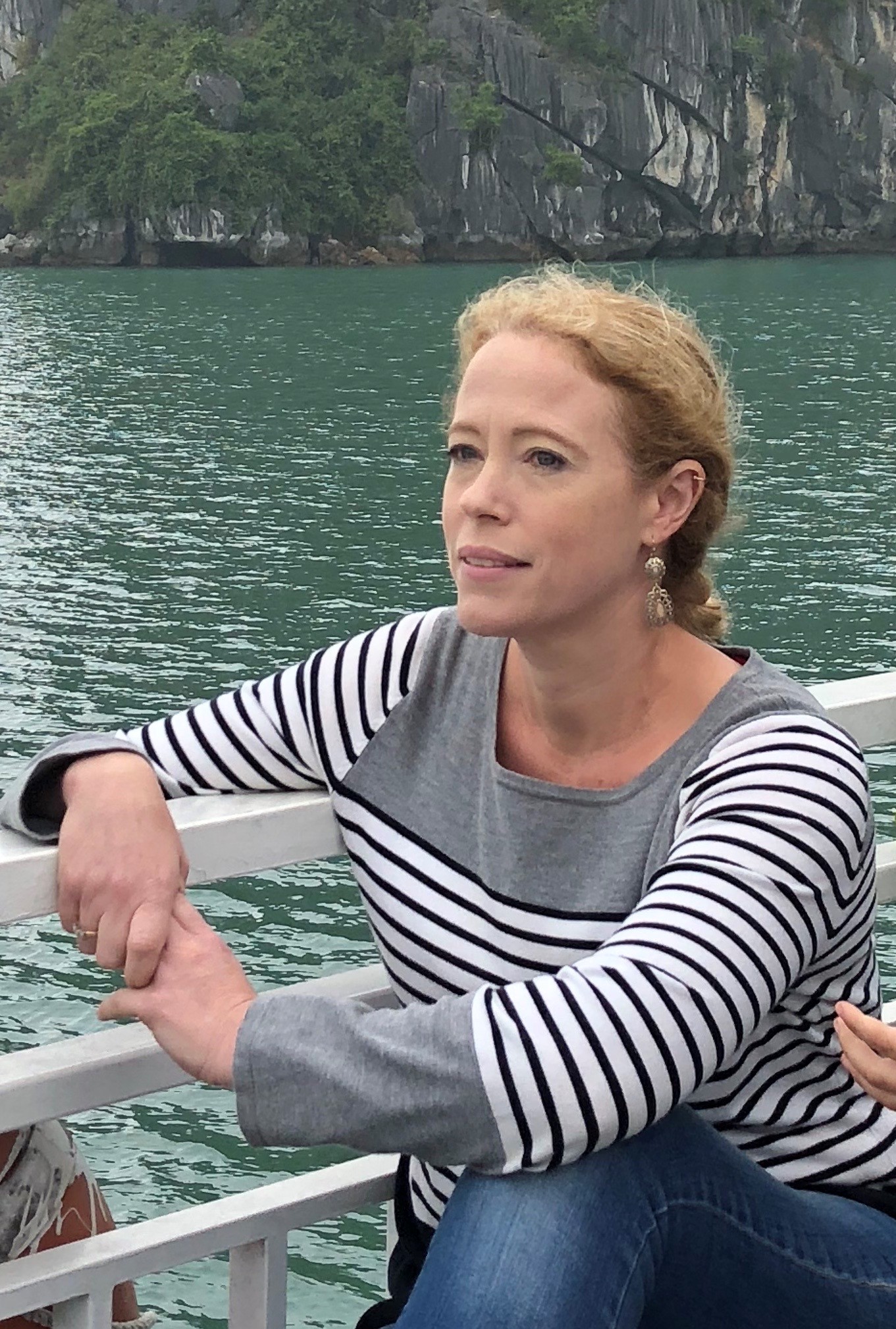
Listening to her talk, you can hear the passion that was first ignited in her hometown of Dorrigo, flamed by the Victoria Falls, and still burns bright in her academic career. As she explains, ‘Our health and wellbeing are intricately tied to biodiversity and the functioning of ecosystems – in other words, the health and wellbeing of the planet.
‘We can take a selfish perspective and say we must look after biodiversity because it looks after us. Or we can say biodiversity is incredible, with a four-billion-year history, so who are we to come along and eradicate it, decimate areas and drive species to extinction?
‘Both these perspectives are valid, but even so, most people don’t understand that biodiversity can also help keep our waters clean, removing toxins and harmful substances. Biodiversity is also responsible for atmospheric conditions, interacting across a range of elements on earth. It gives us food. It gives us shelter. It provides us with pharmaceuticals. And it helps draw down carbon from the atmosphere, which is increasingly important for climate mitigation.
‘There’s a lot of information, especially in the media, and there are some damaging ideas out there. One is believing I’m just one person, so my actions don’t matter. What impact can one person have? But if we all have that perspective, we won’t get anywhere – and it will lead to a terrible outcome.
‘If, however, we have the perspective that I’m just one person but I can do things in my life to create change, and we all do the same, it gets magnified, and we can start to see some benefits. In that case, that power of one can be very positive.’
Harnessing the impact one person can have has also informed Dr Beaumont’s career direction as she transitioned from an academic position to Deputy Dean of Education and Employability. ‘About four years ago, I was weighing up whether to pursue a future fellowship or go into leadership.
‘I decided I was a really good scientist, I’ve done some amazing work, but there are many other really good scientists who do amazing work in my field, whereas there aren’t many people who want to go down the leadership path.
‘I’m passionate about helping others, and it was an opportunity to have a direct impact on how and what we're teaching – I'm essentially having an impact on thousands of students and the direction of their careers; that was a very powerful motivation.’
Her portfolio covers the design and delivery of all undergraduate and postgraduate coursework in the Faculty of Science and Engineering, developing initiatives that help students succeed at university and further staff development. As she says, ‘It’s exciting because I get to support our staff and give them the opportunity to become the best educators they can be. And, for our students, for them to experience the transformation I’ve been fortunate to experience.’
One of many ways she does this is by being involved in coordinating scholarships for students in the Faculty of Science and Engineering. ‘Last year we supported women in STEM, and this year the scholarships were based on hardship – even $1,000 can have an impact, and for some, it can be make or break.
‘I like that these scholarships are not just focused on how a person is performing as a student – we wanted to recognise that sometimes people can’t get the marks they want because of their financial situation. We’re also trying to support people from rural and remote areas, who have far greater cost considerations when moving to university.’
And then there’s the push to engage more students from low socio-economic postcodes, even in Sydney. ‘Many students don’t have a bank of mum and dad, so we need to provide them with opportunities too. And we continue to encourage women in science, women in engineering, women in IT – it’s still not uncommon for a woman to be the only female in her class.’
There’s nothing like lived experience to engender compassion and champion change, but Dr Beaumont’s commitment to the power of scholarships goes beyond her work. Several years ago, she was speaking with a colleague, who told her he had been an equity student at Macquarie and was now giving back to scholarships.
‘I didn’t even realise this was possible until we spoke,’ she says. ‘But it really resonated with me – I want to help those from rural areas and those experiencing financial hardship, so I set up a regular donation to equity scholarships through salary sacrifice.
‘Having left home at such a young age, I went through periods when I was flat broke – there were times when the soles of my shoes were so worn that when it rained, the water would come in under my feet. I’ve transitioned from living paycheck to paycheck, stressing whenever I got a major bill, to being comfortable, with a rewarding career.
‘For me, the opportunities that have come from higher education have been life-transforming. I recognise how fortunate I am, and my family is, now we have solid incomes – we can afford things for our kids that neither my husband nor I ever had as children, and we’ve been able to give them so many more opportunities.
‘But it’s also about recognising that I came to Macquarie University because it accepted people who followed non-traditional pathways. The university took a chance on me and I’m so grateful – that’s why I want to give back.’
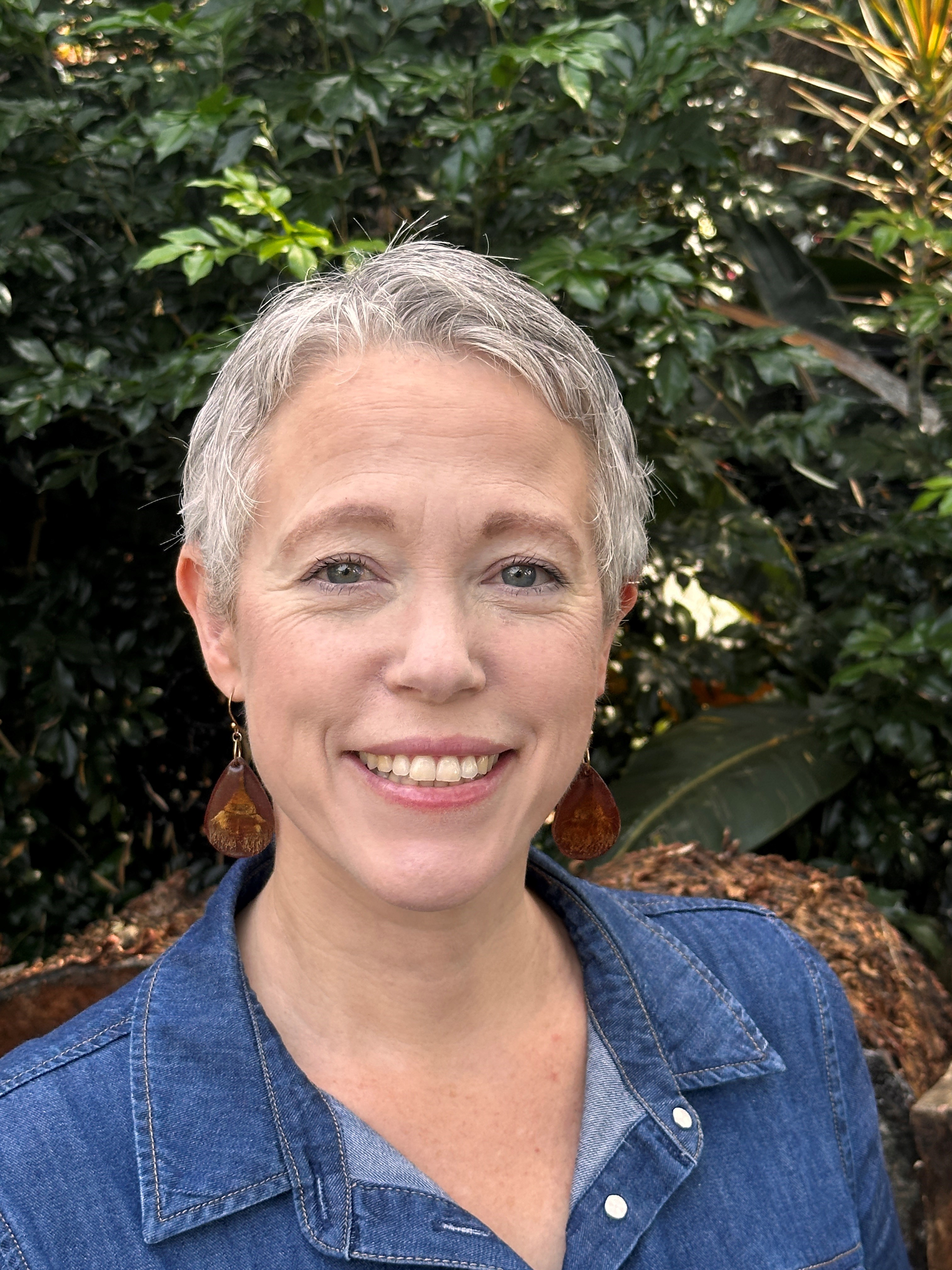
Dr Linda Beaumont
As Deputy Dean of Education and Employability in the Faculty of Science and Engineering at Macquarie University, Dr Linda Beaumont oversees a diverse range of undergraduate and postgraduate courses. Her goals are for Macquarie students to experience a transformative education via future-focused courses, becoming highly sought-after and successful graduates, and for staff to be recognised as world leaders in education.
As a scientist, she is fascinated by nature and motivated to understand the consequences of climate change for biodiversity and the implications for the conservation of threatened species and invasive species management. She has adopted an integrated approach to understanding the complexity of climate impacts by combining habitat suitability models, fieldwork, longitudinal studies and glasshouse experiments. Much of her research is solutions-based, designed in partnership with stakeholders to explicitly fill critical knowledge gaps and provide tools to inform decision-making.